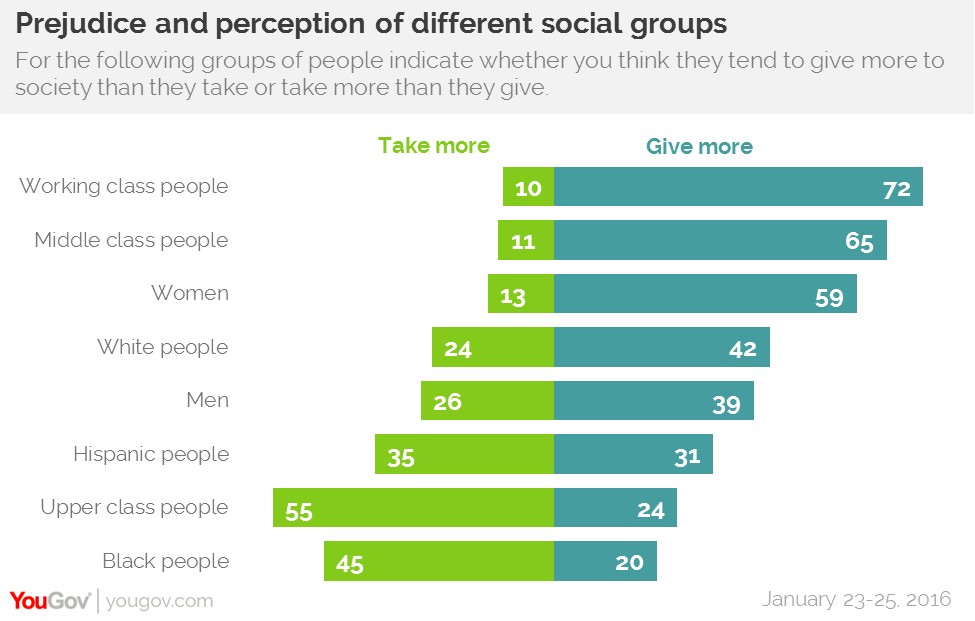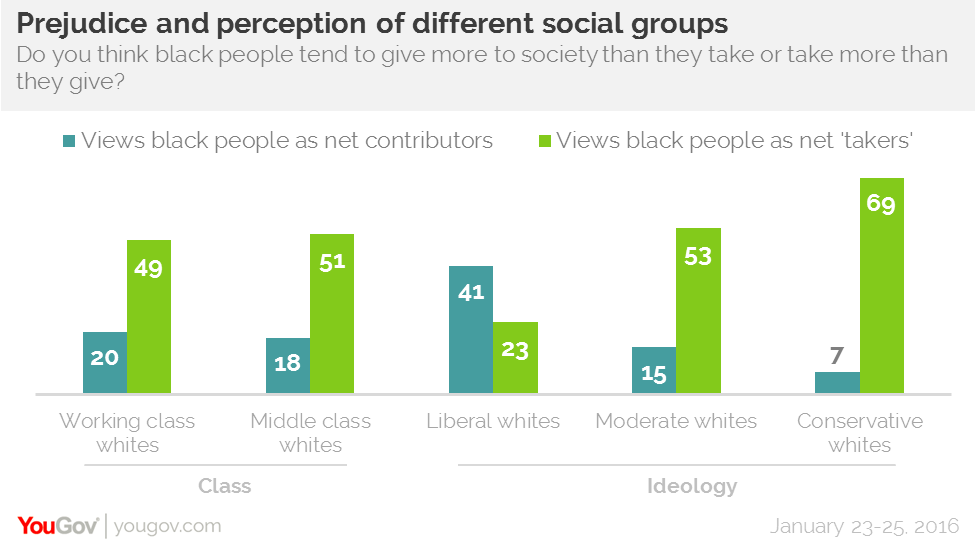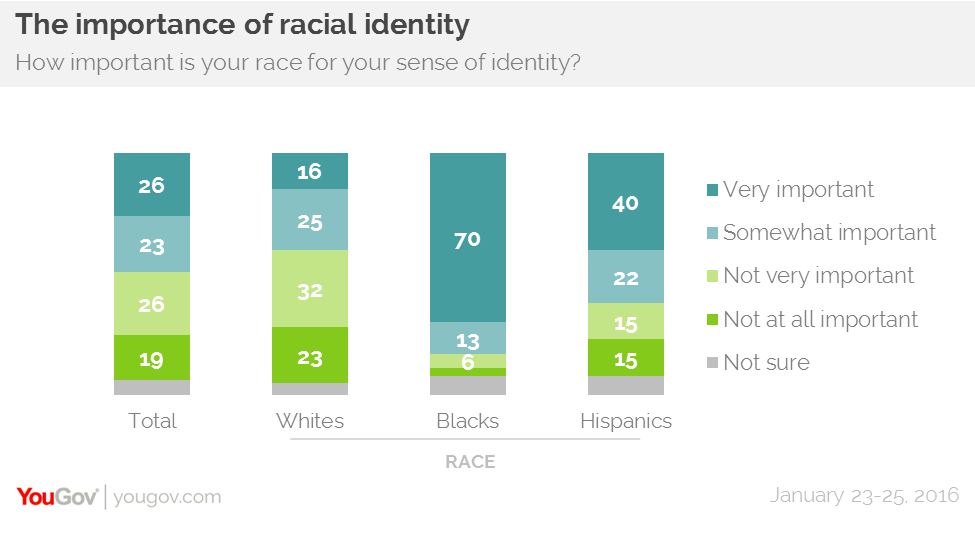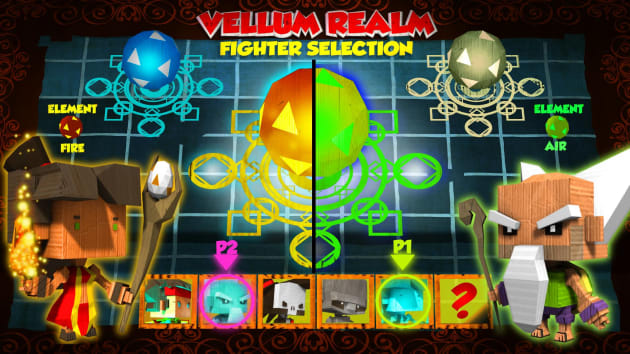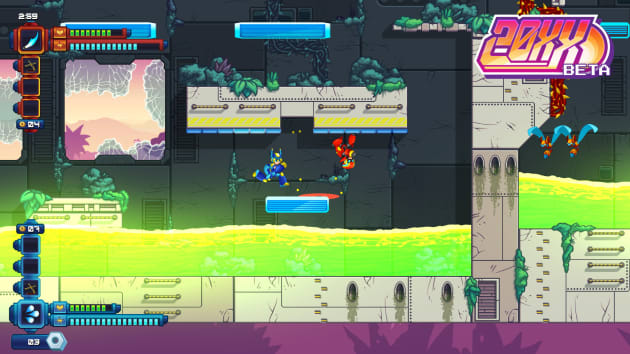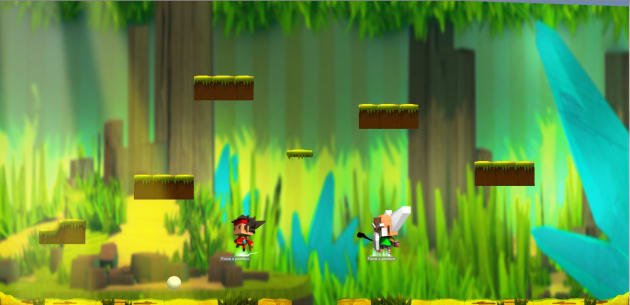The 18th and 19th centuries’ embrace of linguistic delicacy and extreme avoidance of taboo bestowed great power on those words that broached taboo topics directly, freely revealing what middle-class society was trying so desperately to conceal. Under these conditions of repression, obscene words finally came fully into their own. They began to be used in nonliteral ways, and so became not just words that shocked and offended but words with which people could swear.
The definitive expletive of the 18th century was bloody, which is still in frequent use in Britain today, and is so common Down Under that it is known as “the great Australian adjective.” Bloody was not quite an obscenity and not quite an oath, but it was definitely a bad word that shocked and offended the ears of polite society. It is often supposed to be a corruption of the old oaths by our lady or God’s blood (minced form: ’sblood), but this is another urban legend that turns out to be false. Either it derives instead from the adjective bloody as in “covered in blood” or, as the OED proposes, it referred to the habits of aristocratic rabble-rousers at the end of the 17th century, who styled themselves “bloods.” “Bloody drunk,” then, would mean “as drunk as a blood.”
The career of bloody is interesting, because one can clearly see either its perjoration (becoming a worse and worse word) or the rise of civility in action — or perhaps both. In the late 17th century, dramatists had no problem including the word in plays seen by genteel audiences, and printers had no problem spelling it out in their editions of those plays: “She took it bloody ill of him,” is just one example, occurring in the 1693 Maids Last Prayer. Henry Fielding, author of “Tom Jones,” uses it in one of his plays in 1743: “This is a bloody positive old fellow.” And Maria Edgeworth has her hero exclaim of another man, “Sir Philip writes a bloody bad hand,” in 1801’s “Belinda.” If Miss Edgeworth — who wrote novels about young women finding love and good marriages for a largely female readership, as well as morally improving children’s literature (six volumes of “Moral Tales for Young People”) — had her young hero say “bloody,” it can’t have been that bad a word. Miss Edgeworth gets her “bloody” in at almost the last moment it is possible, however. At around this time, the word starts to get more offensive: It begins to be printed as b——y or b—— and falls out of polite use, where it continues through the Victorian era. When George Bernard Shaw wanted to create a scandal, but not too big a scandal, in his 1914 “Pygmalion,” he had Eliza Doolittle exclaim in her newly perfect posh accent, “Walk! Not bloody likely! I am going in a taxi.” The first night’s audience greeted the word with “a few seconds of stunned disbelieving silence and then hysterical laughter for at least a minute and a quarter,” and there were some protests from various decency leagues, but on the whole a scandal never materialized. Bloody became “the catchword of the season” and pygmalion became a popular oath itself, as in “not pygmalion likely.” Had he scripted Eliza to say “Not fucking likely!” (which he very well could have in 1914) there in all likelihood would have been a real scandal, akin to that generated by shift in “Playboy of the Western World.”
This was bloody at the turn of the century — a bad word, but not so bad that it was not in common use, according to Shaw, “by four-fifths of the British nation.” Perhaps because of this somewhat equivocal status, bloody comes in for more than its fair share of opprobrium from Victorian language mavens. In their definitions for fuck and related terms, for example, Farmer and Henley do not editorialize, merely defining the terms (“to copulate,” etc.) and providing examples of use. But they go off on poor bloody. It is
an epithet difficult to define, and used in a multitude of vague and varying senses. Most frequently, however, as it falls with wearisome reiteration every two or three seconds from the mouths of London roughs of the lowest type, no special meaning, much less a sanguinary one, can be attached to its use. In such a case it forms a convenient intensitive, sufficiently important as regards sound to satisfy those whose lack of language causes them to fall back upon a frequent use of words of this type.
Note the typical association of bad language with low social status and lack of education — the London roughs say “bloody” a lot because their vocabulary isn’t rich enough to furnish them other options. The original OED (1888) takes a similar line — bloody is “now constantly in the mouths of the lowest classes, but by respectable people considered ‘a horrid word,’ on a par with obscene or profane language, and usually printed in the newspapers (in police reports, etc.) as ‘b——y.’” Perhaps the OED would have had similar things to say about fuck, but the Victorian editors decided not to include it, along with cunt. And Julian Sharman, whose 1884 “Cursory History of Swearing” does not include any obscene words, attacks bloody for several pages. A sampling:
We cannot disguise to ourselves that there is much in its unfortunate associations to render its occurrence still exceedingly painful. Originating in a senseless freak of language, it has by dint of circumstances become so noisome and offensive … Dirty drunkards hiccup it as they wallow on ale-house floors. Morose porters bandy it about on quays and landing-stages. From the low-lying quarters of the towns the word buzzes in your ear with the confusion of a Babel. In the cramped narrow streets you are deafened by its whirr and din, as it rises from the throats of the chaffering multitude, from besotted men defiant and vain-glorious in their drink, from shrewish women hissing out rancour and menace in their harsh querulous talk.
(To chaffer is “to bargain, haggle, bandy words.”) Again, bloody is portrayed as a word beloved by the ignorant, morally degenerate lower classes. Bloody, unlike a word such as fuck, was perfectly placed to attract the anger from society’s growing intolerance of obscenity — it was “a swear-word,” as the Pygmalion press described it, yet it was not quite profane and not quite obscene. This made it offensive, but not so bad that one couldn’t with any decency draw attention to it.
Bugger was the other early obscenity used nonliterally, with the true flexibility of a fully developed swearword. It was, in the past as now, a blunt, direct word for anal intercourse (or for the person who does the penetrating during said anal intercourse, the pedicator, if you will remember your Latin). Randall Cotgrave used it this way when defining levretée, the girl “buggered” by a greyhound. Even more frequently, however, the use of bugger was divorced from its literal meaning, in examples such as these: “God damn him, blood and wounds, he would bugger his Soul to Hell, and these words he used frequently to Man, Woman, and Child, bugger, bugger, bugger” (1647, reported); “Go, get thee gone … thou frantic ass, to the devil, and be buggered” (1693); “B——st [blast] and b-gg-r your eyes, I have got none of your money” (1794); “Damn ’em bugger you an’ your ballast” (1854); “Take the bugger off, he is knifing me” (1860); “Previous to this the soil had, in the expressive phrase of the country, been ‘buggered over’ with the old cast-iron plows” (1868). One final example shows that the biblical epidemic of crotch grabbing had not entirely died out in the Victorian era. A witness for an 1840 divorce petition described how Susan Shumard “came out and met him [Francis Shields, her brother], and as she came up to him, she grabbed him by his private parts; there was considerable of a scuffle; she held tight, and he hollowed to her, you bugger you, let go.” (This was evidence that Susan had slept with her brother; her husband wanted a divorce because she had supposedly married him without informing him that she was four months pregnant with her brother’s child. The General Assembly of Ohio refused to grant the divorce — they felt that the testimony on both sides was so fantastical and unreliable that they could make no determination about the truth of the matter.) It is interesting that in the 19th century, bugger was apparently a term that could be applied equally to men and women, while today it is used almost exclusively toward men. Along with Francis Shields and the gentleman who called “bugger bugger bugger” to “Man Woman and Child,” we have evidence from the masterpiece of Victorian pornography, “My Secret Life” (1888), in which the protagonist reports that a low-class prostitute with whom he is consorting calls her landlady “bugger.”
This movement contradicts two trends in swearword evolution. With the development of feminism, many swearwords have become more equal-opportunity, not less. Bitch can now be applied to men and women, as can cunt. In the 19th century shit as a noun was reserved exclusively for men — the “West Somerset Word-Book” defines it as “a term of contempt, applied to men only,” as in “He’s a regular shit.” Now, women too can work, vote, own their own property, and be called a shit.
When swearwords don’t become more equal-opportunity, they often begin to be used solely for women — Geoffrey Hughes calls this the “feminization of ambisexual terms.” Words such as scold, shrew, termagent, witch, harlot, bawd, and tramp were all at one point in their histories terms for men; furthermore, the terms were usually neutral and sometimes even adulatory. Scold, for example, comes from the Old Norse word for “poet.” When these terms were feminized, they perjorated, going from neutral or positive to insulting. Bugger bucks this trend, too, going from a word used of men and women equally to an insulting term reserved almost exclusively for men.
In these examples, bugger shows great grammatical flexibility. Geoffrey Hughes categorizes swearing into eight classes, while Tony McEnery finds 16; either way, the above buggers can occupy many of the slots. The word can be personal: “you bugger you!”; personal by reference: “take the bugger off”; a curse: “bugger you!”; destinational: “bugger his Soul to Hell”; and a figurative extension of literal meaning: “the soil was ‘buggered over.’” Hughes notes that “as terms become more highly charged, so they acquire greater grammatical flexibility.” As words become charged — obscene — they are able to be used in more and more ways. Once the worst word in the language, fuck can be used in all eight of Hughes’s categories and in fourteen of McEnery’s sixteen.
As we can see with bugger, most categories of swearing require the word not to be used in its literal sense. When Francis yells “you bugger you” at his sister, he is not suggesting that she goes around having anal intercourse — he means “I have a strong negative emotion toward you, let go of my balls!” When soil is described as “buggered over,” no one is suggesting that teams of sodomites traversed the field, doing their thing — it means, figuratively, “really messed up.” Along with grammatical flexibility, this figurativeness is the hallmark of a fully obscene word, a word used not as a literal descriptor but to shock, offend, or otherwise carry emotion — a swearword.
Bloody and bugger were the two most prevalent swearwords in the 18th and 19th centuries. There is ample evidence of their use, from multiple sources, because they were employed frequently (remember Shaw’s contention that bloody is “in common use as an expletive by four-fifths of the British nation”) and because they were considered less offensive than many other obscene words. It was possible to print the two, even if they had to be disguised as b——y and b-gg-r, where f——k would have been impermissible. But there is tantalizing, if sparse, evidence that our other modern swearwords were making the same transition at the same time, becoming not just obscene words but swearwords, used where one once would have used an oath. By the 1860s, swearing probably sounded much as it does today, with obscene words doing much of the work of swearing, and with religious words — damn it, Jesus, oh God — employed frequently but to less effect.
The evidence for the most part comes from records of court proceedings, where people’s spoken language was recorded verbatim; from pornographic books, where obscene language went hand in hand with obscene doings; or from dictionaries whose editors were brave enough to include bad words. Let’s take fuck, for example. Around 1790, a Virginia judge named George Tucker wrote a poem in which a father argues with his son the scholar, “‘G—d— your books!’ the testy father said, / ‘I’d not give ——— for all you’ve read.’” According to Jesse Sheidlower and Geoffrey Hughes, the third ——— is replacing “a fuck,” producing the first recorded example of the modern teenage mantra, “I don’t give a fuck.” This poem didn’t see the light of day until a scholarly edition of Tucker’s work in 1977. Tucker’s great-granddaughter published some of his poems in 1895, but she somehow didn’t see her way to including this one. By 1879, the evidence is less equivocal. A character in the mock Christmas pantomime “Harlequin Prince Cherrytop and the Good Fairy Fairfuck” (1879) declares, “For all your threats I don’t care a fuck. / I’ll never leave my princely darling duck.” (The panto relates the story of Prince Cherrytop, who has become enslaved by the Demon of Masturbation. The Good Fairy Fairfuck helps him conquer his addiction to self-abuse, so he can embrace the joys of holy matrimony with his betrothed, the Princess Shovituppa. It was written by an eminent journalist for the Daily Telegraph, whose work had also been published by Dickens and Thackeray.)
In 1866, a man swore in an affidavit that one Mr. Baker had told him he “would be fucked out of his money by Mr. Brown.” The notary who recorded the testimony editorializes, “Before putting down the word as used by the witness, I requested him to reflect upon the language he attributed to Mr. Baker, and not to impute to him an outrage upon all that was decent.” Luckily for us, the witness insisted he copy it down, outrage or no, and so we have the first recorded use of fuck meaning “cheat, victimize, betray.” In 1836 Mary Hamilton was charged with using “obscene language” in the street — she followed a group of other women, called them “bloody whores,” and “[told] them to go and f … k themselves.” An 1857 abolitionist work relates the story of a slaveholding doctor who whipped one of his slaves on Sunday. The woman “writhed under each stroke, and cried, ‘O Lord O Lord!’” The doctor “gazed on the Woman with astonishment” and said “Hush you ******* b h, will you take the name of the Lord in vain on the Sabbath day?” (“******* b h” = “fucking bitch”). Again we have circumstance to thank for the preservation of this insult. The authors of the antislavery tract were invested in making slaveholders appear as foul and morally bankrupt as they could, and one easy way to signal that was with obscene language. And though they provide no examples in their slang dictionary, Farmer and Henley describe both the adjective and adverb forms of fucking as “common.” The adjective, they note, is “a qualification of extreme contumely” (“fucking bitch” is a pretty good example of that), while the adverb (“I am fucking furious!”) is “intensitive and expletive; a more violent form of bloody.” If fucking was “common” in 1893, when the volume containing F was published, it was probably in pretty wide use for some years before that, as the 1857 example implies.
So by the mid- to late 19th century, we have many forms of fuck being used just as they are today — “he fucked me over,” “go fuck yourself,” “you fucking bitch,” “I don’t give a fuck,” et cetera. What about our other swearwords? Shit was apparently used in modern ways back then too. In an investigation of voting fraud from 1882, one man was recorded as telling another, “Shit, that’t nothen [that ain’t nothing]; get your father to swear that you are twenty-one.” This is shit as an interjection, just as we use it today: “Shit, I got a parking ticket.” And we’ve already seen the “West Somerset Word-Book of 1886″ record shit as a “term of contempt,” which, it notes, is “very com. [common].”
The same dictionary includes a definition for nackle-ass, an adjective meaning “poor, mean, inferior, paltry: applied as a term of contempt to both persons and things indifferently,” as in “Why do you not buy yourself a knife worth something; (and) not keep about such a [nackle-ass] thing as that?” or “A plat-vooted [flat-footed], nackle-ass old son of a bitch!” While nackle-ass in particular doesn’t seem to have made much of an impression beyond West Somerset, it is strikingly reminiscent of our own modern and widespread -ass constructions — big-ass, bad-ass, dumb-ass, and so on. It is different, too, from the Renaissance construction burnt-arsed, as in “burnt-arsed whore.” This was a literal use — it meant “infected with venereal disease.”
One final example will have to suffice: in 1894, a New York man murdered an acquaintance partly because the acquaintance wouldn’t stop calling him “cock-sucker.” It’s not clear who started the bad blood originally, but the deceased escalated things by ordering drinks for a group of men but excluding his murderer with the words “Treat them five and leave that cock-sucker out.” He then smacked the defendant on the nose and called him “cock-sucker” several more times. When at one point the defendant didn’t have enough money to pay for another drink, the deceased also butted in with “Let him stick it up his ass.” Eventually the defendant left the bar, came back with the gun, and shot the man who had repeatedly called him “cock-sucker.”
These examples sound practically contemporary. The words in question, fuck, shit, ass, and cocksucker, were chosen for their emotive charge, not to denote as directly as possible some part of the body or action. They were employed to shock and offend, or to express the speaker’s emotional state. Most of these are also figurative uses, not literal — nackle-ass has nothing to do with the buttocks, to be “fucked out of your money” has nothing to do with sex. It is possible that cocksucker was meant literally; the defendant repeatedly asserted that he was not a cocksucker. It was still an extremely offensive word, however, with a shock value out of proportion to its literal meaning — it led, after all, to murder. Examples of words like these are much scarcer than ones involving bloody and bugger. They are considered to be worse today, and were probably more offensive in the past as well (“an outrage upon all that was decent,” as the notary put it in 1866). Whether or not they were used less frequently in life — and they probably were not, given that fucking and shit were both described as “common” by their dictionary editors — they made it into print far less often. An essayist for the Gentleman’s Magazine of 1891 echoes the lexicographers’ insistence that these words were common, opining that “the ‘bad language’ of the present day must be characterized as obscene rather than profane.” The flexibility of bugger reveals that the contemporary grammar of obscenity existed in the early 19th century; the ubiquity of bloody shows that 19th century people used bad words with abandon. Coupled with the tantalizing but few Victorian examples of obscenities that have come down to us, it seems safe to say that by the 1860s, and perhaps even earlier, people in America and Britain were swearing much as they do today.
Another, related question is when obscene words started to be identified as “swearing,” along with oaths. Many works of the period that address swearing refer to “profane swearing and obscene language,” as if these are still considered to be separate but related kinds of speech. The entry on swearing in “Chambers’s Encyclopedia” of 1892, however, notes that “by oaths are loosely understood many terms and phrases of a gross and obscene character, as well as those words the use of which implies profanity proper.” And the Boston magazine Liberty identified both obscenity and profanity as types of swearing in 1887: “We say that it is no worse to swear by the realities of nature as exemplified in the human body than to swear by a holy ghost. One is obscenity; the other profanity.” Certainly by the early 20th century, we achieve our confused state in which “profanity” — originally a religious concept indicating the opposite of sacred — refers almost exclusively to obscene words, and “swearing” includes both oaths and obscenities.
Gamahuche, Godemiche and the Huffle
Though Victorian people were swearing in much the same way that we do today, not all the bad words of the time are as familiar as fucking bitch. Many of these words rich and strange are not swearwords per se but terms for topics so esoterically taboo that they would never have come up in polite conversation. In his 1785 “Classical Dictionary of the Vulgar Tongue,” Francis Grose includes to huffle, which is “a piece of bestiality too filthy for explanation.” (The 1788 and 1823 editions decide that discretion is the better part of valor and fail to mention the bestial practice at all.) Grose also lists “to bagpipe, a lascivious practice too indecent for explanation.” Even Farmer and Henley, brave champions of obscenity who boldly explained fucking, refuse to define to bagpipe in their dictionary — they simply repeat Grose’s definition manqué. One hopes for something really spectacular from these words, but they are simply the Victorian version of blow job, slang for fellatio, a practice evidently much more shocking one or two centuries ago. Another popular Victorian word for this lascivity was gamahuche. It derives from French, so it probably was a euphemism used in order to lift the tone of huffle and bagpipe out of the gutter. It more properly means “mouth on genitals,” as it can be used for both fellatio and cunnilingus.
Larking is another “lascivious practice that will not bear explanation,” according to Grose in 1785. (It also disappears from later editions of his dictionary.) It is a bit harder to figure out to what larking refers. Farmer and Henley go with fellatio again, but Gordon Williams argues persuasively that larking is having sex with the man’s penis between the woman’s breasts. In an 1800 engraving called “The Larking Cull,” the man is shown in just this position.
A practice considered less horrifying, in that it gets a real definition, is to tip the velvet. In the 18th century, this apparently meant “French-kiss” — Grose describes it as “tongueing a woman,” or “to put one’s tongue into a woman’s mouth.” A hundred years later, Farmer and Henley are defining it as cunnilingus. It is possible that the meaning changed in the intervening years, or that it was already ambiguous in the 18th century — “tongueing a woman” could refer equally to either action. Such kissing does seem to have been considered deviant; “Harris’s List of Covent-Garden Ladies,” a guide to London prostitutes published annually between 1757 and 1795, mentions how “a velvet salute of this kind” from Miss H— lsb—ry “had nearly disgusted Lord L——.” For two guineas they worked it out, however: “he found that her tongue was attuned to more airs than one.” (Covent Garden was a well-known center of prostitution. According to Grose, covent garden ague was venereal disease, a covent garden abbess was a bawd, and a covent garden nun was a prostitute.)
Other wonderful words that may be unfamiliar to you include godemiche, another French import, meaning “dildo.” A dildo, Grose helpfully explains, is “an implement resembling the virile member, for which it is said to be substituted, by nuns, boarding school misses, and others obliged to celibacy, or fearful of pregnancy. Dildoes are made of wax, horn, leather, and diverse other substances, and if fame does not lie more than usually, are to be had at many of our great toy shops and nick nackatories.” Grose is wonderfully able to describe what a dildo is while denying any firsthand knowledge of them. Lobcock is “a large relaxed penis, also a dull inanimate fellow.” A rantallion is “one whose scrotum is so relaxed as to be longer than his penis, i.e. whose shot pouch is longer than the barrel of his piece.” Fartleberries are “excrement hanging to the hairs about the anus, &c, of a man or woman.” (Here &c, “et cetera,” is back to being slang for the private parts.) And then there is burning shame, “a lighted candle stuck into the parts of a woman, certainly not intended by nature for a candlestick.” Why this lascivious practice bears mention when larking and huffling don’t is not completely clear. Grose defines cunt as “a nasty name for a nasty thing”; perhaps he was simply unable to deny himself the pleasure of the pun: burning shame is “terrible shame/shame (cunt) on fire.”
There were many vulgar slang words for the penis and the vagina themselves as well. Pego was popular, as were words that depicted the penis as splitting the woman’s anatomy or plugging a hole: arse-opener, arse-wedge, beard-splitter, chinkstopper, plugtail. It was also Thomas or man Thomas, machine, and tool, which are still in use today. The vagina was the monosyllable (Grose’s default word), quim, or pussy, a woman’s commodity — what a woman has to offer in the free market — or her madge (Madonna’s nickname is more appropriate than we thought). Slang for sexual intercourse included roger (also 18th and 19th century slang for the penis; popular in Britain today), screw, and have your greens, the last putting a different spin on a phrase I have shouted at my children for years.
Breasts and bubbies were the standard terms for breasts in the 18th and 19th centuries. Bubbies was pronounced “bubbies,” as in Jewish grandmothers, not “boobies,” as in our own juvenile word for breasts. Harris’s List finds many occasions to describe bubbies and breasts — Mrs. Books, who lodges next to the pawnbroker on Newman Street, for example, “is tolerable well made, with well formed projecting bubbies, that defy the result of any manual pressure, panting and glowing with unfeigned desire, and soon inviting the gratification of the senses.” Betsy Miles, at a cabinetmaker’s in Old Street, Clerkenwell, is “known in this quarter for her immense sized breasts, which she alternately makes use of with the rest of her parts, to indulge those who are particularly fond of a certain amusement” — larking, it sounds like. (She does it all, actually, “backwards and forwards.” “Entrance at the front door” is “tolerably reasonable,” but she gets “nothing less than two pound for the back way.”) Diddeys was another word for the breasts themselves, while bushelbubby was slang for a woman like Betsy Miles, who had large breasts. When the List describes the “two young beautiful tits” of Mrs. Mactney, Great Titchfield Street, however, it is referring to her teenage protégées, not her breasts. Tit came into its modern meaning only in the early twentieth century; from the 17th to 19th centuries, it indicated a young girl. (Tit as a variant of teat was used in the early Middle Ages — a 10th century vocabulary defines mamilla [breast] as “tit” and papilla [nipple] as “titt-strycel.”)
Excerpted from “Holy Sh*t: A Brief History of Swearing” by Melissa Mohr. Published by Oxford University Press. Note that Oxford University Press USA reserves all rights in the Work and the Excerpt except as explicitly provided herein.

